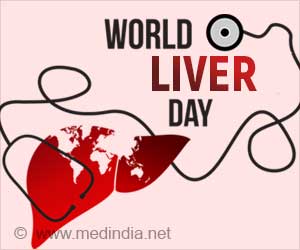Highlights
- Cancer cells spread through lymphatic vessels which serve as ‘roads’.
- These lymphatic vessels prefer ‘eating’ fats for their growth.
- The fats generate molecules which regulate the expression of the genetic code needed for the proper function of lymphatics.
The research team was led by Prof. Dr. Peter Carmeliet (VIB-KU Leuven).
Metastasis, or the spread of cancer to other organs and sites is one of the most important and life-threatening complications of cancer. Most of the cancer related deaths occur due to this complication.
For cancer cells to spread, they must find a pre-existing 'road', or build a new 'road' to travel on. Lymphatic vessels are a primary route of cancer cell spread.
This could lead to the development of new therapeutics to limit lymphatic vessel growth in cancer by targeting fat utilization.
A research team consisting of doctors Brian Wong, Xingwu Wang and Annalisa Zecchin, guided by Prof. Carmeliet sought to investigate the nutrient utilization (metabolism) of lymphatic vessels, which would be the first of its kind.
The first step in translating this finding to the cancer setting and inhibition of metastasis is using drugs to prevent fat utilization by lymphatics so that the lymphatic growth is prevented.
Lymphatics Love Eating Fats
During embryonic development, lymphatics 'transform' from blood vessels. Researchers discovered that the signals that transform blood vessels to lymphatics also change their 'taste' and increases their preference for eating fat for development.
This transformation in the preference of ‘taste’ relies on fat utilization.
The function of lymphatics are controlled by certain epigenetic changes. The fat is used to generate molecules which can modify important factors that regulate the expression of the genetic code causing these changes.
The genetic code (DNA) itself is not altered by fat, but the utilization of this code that defines the lymphatic gene signature is modulated.
The growth and function of lymphatics can be restored by resupplying another (fat) nutrient source.
Dr. Brian Wong "Our study shows that the usage of fat by lymphatics is programmed in their development, and required for their growth and function. We have demonstrated by enhancing or preventing the usage of fat (or fat byproducts), we can control the growth of lymphatics."
The next step
In the next step, researchers will test:
- Inhibitors of fat usage- Large scale testing of inhibitors of fat usage to determine their ability to reduce metastasis in different types of cancer.
- Dietary fat supplements- This will be tested to see if they can heal faulty lymphatics termed lymphedema, which is a major complication in cancer patients undergoing surgical cancer removal. It leads to the debilitating swelling and dysfunction of the arms and legs.
The study is published in the top scientific journal, Nature.
Reference
- Peter Carmeliet et al. The role of fatty acid β-oxidation in lymphangiogenesis. Nature; (2016) doi:10.1038/nature21028
Source-Medindia















